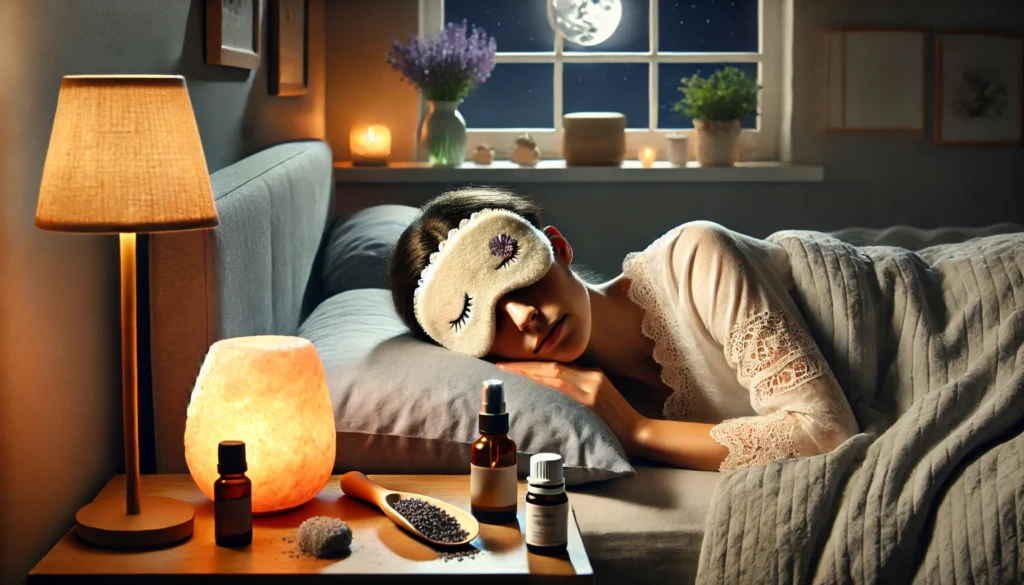Anxiety is one of the most common mental health challenges of the 21st century. It touches millions of lives across the globe, manifesting in forms that range from generalized anxiety disorder (GAD) and panic attacks to social phobia and situational stress. While the triggers and intensity of anxiety vary widely, the need for effective, sustainable, and trustworthy methods of managing it remains constant. In recent years, there has been growing interest in holistic and science-supported approaches that prioritize long-term well-being without reliance on pharmaceutical interventions. This trend has spotlighted the significance of expert-endorsed, natural products to help with anxiety. For individuals seeking credible guidance on the best stress and anxiety relief products, this article explores expert-backed solutions that align with current clinical research and mental health best practices.
You may also like: Proven Relaxation Techniques for Stress and Anxiety: Evidence-Based Strategies to Calm Your Mind and Body
Understanding the Roots of Anxiety and the Need for Safe Interventions
Anxiety often emerges from a combination of biological predisposition, environmental stressors, and lifestyle factors. While occasional anxiety is a normal response to stress, chronic anxiety can severely affect one’s physical health, cognitive function, relationships, and quality of life. Traditional treatments include therapy and prescription medications such as SSRIs and benzodiazepines. However, these options can carry significant side effects or risks of dependency. Increasingly, people are turning toward natural anxiolytics—substances that help reduce anxiety without inducing sedation or impairing cognitive function. The growing body of scientific research on anxiety relief products that are both effective and safe has made it possible to explore alternatives that work harmoniously with the body and mind.
The Science Behind Natural Anxiolytics
A natural anxiolytic is a substance, typically derived from plants or minerals, that reduces symptoms of anxiety. These compounds support the body’s ability to regulate stress hormones such as cortisol and adrenaline, while also promoting the neurotransmitters that govern mood stability, including GABA, serotonin, and dopamine. Unlike synthetic medications that often cause drowsiness or emotional blunting, the best stress and anxiety relief products in the natural category tend to work subtly yet consistently over time. Key examples include adaptogenic herbs like ashwagandha, amino acids such as L-theanine, and vitamins like B-complex and magnesium. When used correctly and under professional supervision, these agents offer a reliable option for individuals looking to ease symptoms of anxiety without sacrificing clarity or emotional responsiveness.
Ashwagandha: A Pillar of Natural Stress Relief
Ashwagandha (Withania somnifera) is one of the most studied adaptogenic herbs and a cornerstone in Ayurvedic medicine. Numerous clinical studies have demonstrated its efficacy in reducing cortisol levels and promoting a state of calm alertness. What makes ashwagandha particularly appealing among anxiety relief products is its dual-action ability: it calms the nervous system while enhancing physical resilience. Users often report a noticeable reduction in stress-related fatigue, irritability, and insomnia. Moreover, its adaptogenic nature means that it helps the body adapt to both psychological and physiological stressors, making it suitable for long-term use. For those seeking natural anxiolytics with robust scientific backing, ashwagandha consistently ranks among the top recommendations from integrative health practitioners.
Magnesium: A Critical Mineral for Mental Stability
Magnesium plays a pivotal role in hundreds of biochemical reactions in the human body, many of which directly affect neurological function and stress response. Low magnesium levels have been linked to increased anxiety, depression, and poor sleep. Supplementation with bioavailable forms such as magnesium glycinate or magnesium threonate has been shown to improve mood regulation and decrease the physiological symptoms associated with anxiety. Unlike fast-acting pharmaceuticals, magnesium offers a foundational approach by restoring essential mineral balance in the brain and body. Among products to help with anxiety, magnesium supplements are frequently endorsed by neurologists and naturopathic doctors alike for their safety, affordability, and wide-ranging benefits.
L-Theanine: Calming the Mind Without Sedation
Found naturally in green tea, L-theanine is an amino acid that promotes alpha brainwave activity, the same type of wave associated with meditation and mindfulness. Research indicates that L-theanine increases levels of GABA, serotonin, and dopamine, thereby fostering a sense of calm without impairing alertness. This makes it one of the best stress and anxiety relief products for individuals who need to remain focused and productive while managing anxiety. Clinical studies suggest that L-theanine can significantly reduce both the psychological and physiological markers of stress, including heart rate and blood pressure. It is particularly useful in high-pressure environments such as academia or the workplace, where performance and composure must go hand in hand.

Omega-3 Fatty Acids: Supporting Brain Health and Emotional Balance
The brain is composed largely of fat, and omega-3 fatty acids—particularly EPA and DHA—are essential for its structure and function. These compounds play a vital role in neuroplasticity, inflammation control, and neurotransmitter production. Deficiencies in omega-3s have been associated with mood disorders, including anxiety and depression. Supplementation with high-quality fish oil has shown promise in reducing symptoms of anxiety, especially when combined with lifestyle interventions such as exercise and therapy. Mental health professionals often recommend omega-3 supplements as part of a comprehensive plan that includes diet, sleep, and stress management. As natural anxiolytics, omega-3s stand out not just for their mood-stabilizing effects but also for their broader health benefits, including cardiovascular and cognitive support.
Probiotics and Gut-Brain Axis: Enhancing Emotional Resilience from Within
Recent advances in neuroscience and microbiology have uncovered an intricate connection between the gut and the brain, often referred to as the gut-brain axis. This bi-directional communication system reveals that the state of one’s gut health can directly influence mental well-being. The microbiome—a collection of trillions of microbes living in the gastrointestinal tract—plays a vital role in mood regulation, stress response, and even cognitive clarity. Disruptions in the microbiome can lead to inflammation and neurotransmitter imbalances, both of which are associated with heightened anxiety. Supplementing with high-quality probiotics, particularly strains such as Lactobacillus rhamnosus and Bifidobacterium longum, has shown promising results in reducing symptoms of anxiety in both clinical and preclinical trials.
Probiotic supplementation, when combined with a fiber-rich, plant-based diet, enhances the diversity and stability of gut flora, supporting a healthier mood and improved stress management. This emerging area of research continues to reinforce the idea that mental health must be addressed systemically and holistically. For individuals seeking products to help with anxiety that work at a foundational level, probiotics represent a powerful yet underappreciated tool. Functional medicine practitioners are increasingly recommending targeted probiotic regimens to patients dealing with chronic anxiety, often noting significant improvements in emotional resilience and sleep quality. As the science evolves, it is becoming increasingly evident that a balanced microbiome can be a gateway to more stable mental health.
Rhodiola Rosea: Boosting Adaptability in Times of Stress
Rhodiola rosea is a flowering plant traditionally used in Eastern European and Asian medicine to combat fatigue, enhance endurance, and stabilize mood. As an adaptogen, Rhodiola helps the body resist the effects of both physical and emotional stress, making it particularly valuable for those who feel mentally overwhelmed or burned out. Modern research suggests that Rhodiola can reduce cortisol levels, support cognitive performance under pressure, and alleviate mild symptoms of anxiety. One of the most compelling aspects of Rhodiola is its ability to enhance mental clarity while simultaneously fostering a sense of calm, allowing individuals to feel both energized and emotionally balanced.

Frequently Asked Questions: Natural Solutions and Expert Insights on Anxiety Relief Products
1. Can anxiety relief products be combined with traditional therapy or medications?
Absolutely. In fact, many mental health professionals support the integration of natural anxiolytics with conventional treatments like cognitive behavioral therapy (CBT) or selective serotonin reuptake inhibitors (SSRIs). When monitored by a licensed healthcare provider, using products to help with anxiety alongside traditional methods may enhance results and reduce dependency on higher pharmaceutical doses. Natural interventions such as magnesium or L-theanine can support emotional regulation and help ease transitional periods when starting or adjusting medication. However, it’s essential to ensure there are no contraindications, particularly when using herbal compounds that may influence liver enzyme activity. Coordination between providers ensures both safety and optimization of the best stress and anxiety relief products in a holistic care plan.
2. How long does it typically take for natural anxiolytics to show results?
The onset of effects varies depending on the specific product, the individual’s metabolism, and the nature of their anxiety. While some anxiety relief products such as L-theanine may produce calming effects within 30 to 60 minutes, others, like adaptogens such as ashwagandha or Rhodiola, typically require consistent use over two to four weeks to show meaningful benefits. This time frame allows the body to gradually build resilience against stress and restore balance in neurotransmitter levels. Importantly, the gradual progression often leads to more sustainable outcomes compared to the rapid, short-lived effects of some pharmaceuticals. Users should maintain realistic expectations and focus on consistency when evaluating the best stress and anxiety relief products.
3. Are there any lifestyle factors that enhance the effectiveness of anxiety relief products?
Yes, lifestyle factors significantly influence the impact of both conventional and natural anxiety management tools. Regular physical activity, particularly moderate-intensity aerobic exercise, can enhance the body’s uptake and utilization of natural anxiolytics by increasing endorphin and serotonin production. Similarly, practices such as mindfulness meditation, breathwork, and quality sleep hygiene amplify the effectiveness of products to help with anxiety by reducing systemic inflammation and stabilizing cortisol rhythms. A diet rich in omega-3 fatty acids, antioxidants, and prebiotic fibers also supports the gut-brain axis, optimizing mental clarity and emotional stability. Incorporating these habits alongside anxiety relief products provides a synergistic framework for long-term wellness.
4. How do I know which anxiety relief product is right for my specific symptoms?
Choosing the right solution depends on the nature and root cause of your anxiety. If your symptoms are predominantly physical—such as muscle tension, restlessness, or insomnia—then magnesium or L-theanine may offer quick relief. For mental fatigue and emotional burnout, adaptogens like Rhodiola or ashwagandha can be more effective. Individuals experiencing gastrointestinal symptoms alongside anxiety may benefit most from probiotics that regulate the gut-brain axis. Consulting a licensed healthcare provider can help match symptoms with the best stress and anxiety relief products based on your health history, lifestyle, and preferences. Personalized approaches are key in finding natural anxiolytics that truly align with your body’s needs.
5. Are anxiety relief products safe for long-term use?
Many anxiety relief products are considered safe for long-term use, particularly when they are plant-based or derived from essential nutrients. Magnesium, B-complex vitamins, and probiotics, for example, are often used daily to maintain mental and physical balance. Natural anxiolytics like ashwagandha and Rhodiola are also generally well-tolerated when used in standardized doses under supervision. However, it is important to cycle certain herbs or take periodic breaks, especially with more potent compounds, to avoid potential tolerance or reduced efficacy. Safety and long-term compatibility with other supplements or medications should always be evaluated with the guidance of a knowledgeable practitioner.
6. Can diet and nutrition influence the effectiveness of natural anxiolytics?
Absolutely. Nutritional status has a profound impact on the body’s ability to absorb and respond to anxiety relief products. For instance, magnesium absorption is impaired by excessive caffeine, alcohol, or processed foods, which can blunt its effectiveness. Similarly, omega-3 fatty acids require a balanced intake of fats and antioxidants to be metabolized efficiently. Whole-food diets rich in vitamins, minerals, and phytonutrients create a biochemical environment that supports the action of the best stress and anxiety relief products. Timing also matters; taking supplements with meals that contain healthy fats can increase the bioavailability of fat-soluble compounds like vitamin D and fish oil.
7. What role does the placebo effect play in natural anxiety relief products?
The placebo effect can be surprisingly powerful, particularly in conditions like anxiety where perception and expectation significantly influence outcomes. This does not diminish the legitimacy of natural anxiolytics, but rather underscores the importance of belief, ritual, and intention in healing. When individuals trust the efficacy of their chosen products to help with anxiety, it may engage the parasympathetic nervous system and create measurable physiological responses. This psychological boost, combined with real pharmacological actions, can lead to greater improvements than expected. Understanding this dynamic encourages a more integrated approach that honors both the mind and the body in the healing process.
8. Are there innovative technologies or delivery methods that enhance natural anxiety relief?
Yes, emerging delivery systems are improving the bioavailability and convenience of anxiety relief products. Liposomal encapsulation, for example, allows nutrients like magnesium or herbal extracts to bypass digestive breakdown and enter cells more efficiently. Transdermal patches and sublingual sprays are also gaining popularity for their rapid absorption and sustained release. These innovations are particularly helpful for individuals with digestive sensitivities or those seeking fast-acting relief. As interest in the best stress and anxiety relief products grows, technology continues to bridge the gap between natural compounds and modern convenience, offering smarter and more personalized options.
9. How do environmental and social factors affect the success of using anxiety relief products?
Environmental and social contexts play a pivotal role in mental health and can either reinforce or undermine the effects of natural anxiolytics. A high-stress home or workplace environment may trigger chronic cortisol elevation, making it harder for products to help with anxiety to perform optimally. Supportive relationships, on the other hand, can boost oxytocin and serotonin levels, amplifying the benefits of supplements and herbs. Light exposure, noise pollution, and access to nature also influence mood regulation. Building a lifestyle that supports calm and balance enhances the potency of anxiety relief products and encourages lasting change.
10. What are future trends in the development of anxiety relief products?
The future of anxiety management is moving toward precision wellness—tailored protocols based on genetic, microbiome, and neurochemical data. Researchers are exploring how DNA profiles affect individual responses to specific herbs and nutrients, paving the way for customized formulations of natural anxiolytics. Innovations in AI and wearable tech will also allow for real-time tracking of emotional states, enabling users to time their intake of products to help with anxiety for maximum effectiveness. The integration of neurofeedback and digital therapeutics alongside supplements could redefine how we view the best stress and anxiety relief products. Ultimately, the field is evolving toward a more holistic, data-driven approach that combines tradition with technology.

Among the best stress and anxiety relief products, Rhodiola is frequently highlighted by herbalists and integrative psychiatrists due to its favorable safety profile and efficacy across a broad spectrum of stress-related conditions. When taken consistently in standardized extract form, it can improve mental stamina and reduce feelings of helplessness and anxiety. Importantly, Rhodiola has also demonstrated a protective effect on the brain’s neurotransmitter systems, including serotonin and dopamine pathways. This reinforces its potential not only as a symptom-reliever but also as a neuroprotective agent that fosters long-term emotional equilibrium. As our understanding of natural anxiolytics deepens, Rhodiola remains an essential part of the conversation.
natural stress support, herbal remedies for anxiety, calming supplements, emotional wellness tools, adaptogenic herbs, relaxation techniques, brain-gut connection, holistic mental health, mood-enhancing nutrients, integrative psychiatry, wellness lifestyle choices, cognitive relaxation aids, functional medicine for anxiety, herbal mood boosters, neurochemical balance, lifestyle changes for stress, emotional resilience strategies, nutritional psychiatry, natural calming agents, non-pharmaceutical anxiety support
Further Reading:
Natural Remedies to Alleviate Anxiety
6 Natural Products to Consider for People with Anxiety
7 Evidence-Based Natural Mental Health Treatments
Disclaimer
The information contained in this article is provided for general informational purposes only and is not intended to serve as medical, legal, or professional advice. While Health11News strives to present accurate, up-to-date, and reliable content, no warranty or guarantee, expressed or implied, is made regarding the completeness, accuracy, or adequacy of the information provided. Readers are strongly advised to seek the guidance of a qualified healthcare provider or other relevant professionals before acting on any information contained in this article. Health11News, its authors, editors, and contributors expressly disclaim any liability for any damages, losses, or consequences arising directly or indirectly from the use, interpretation, or reliance on any information presented herein. The views and opinions expressed in this article are those of the author(s) and do not necessarily reflect the official policies or positions of Health11News.


